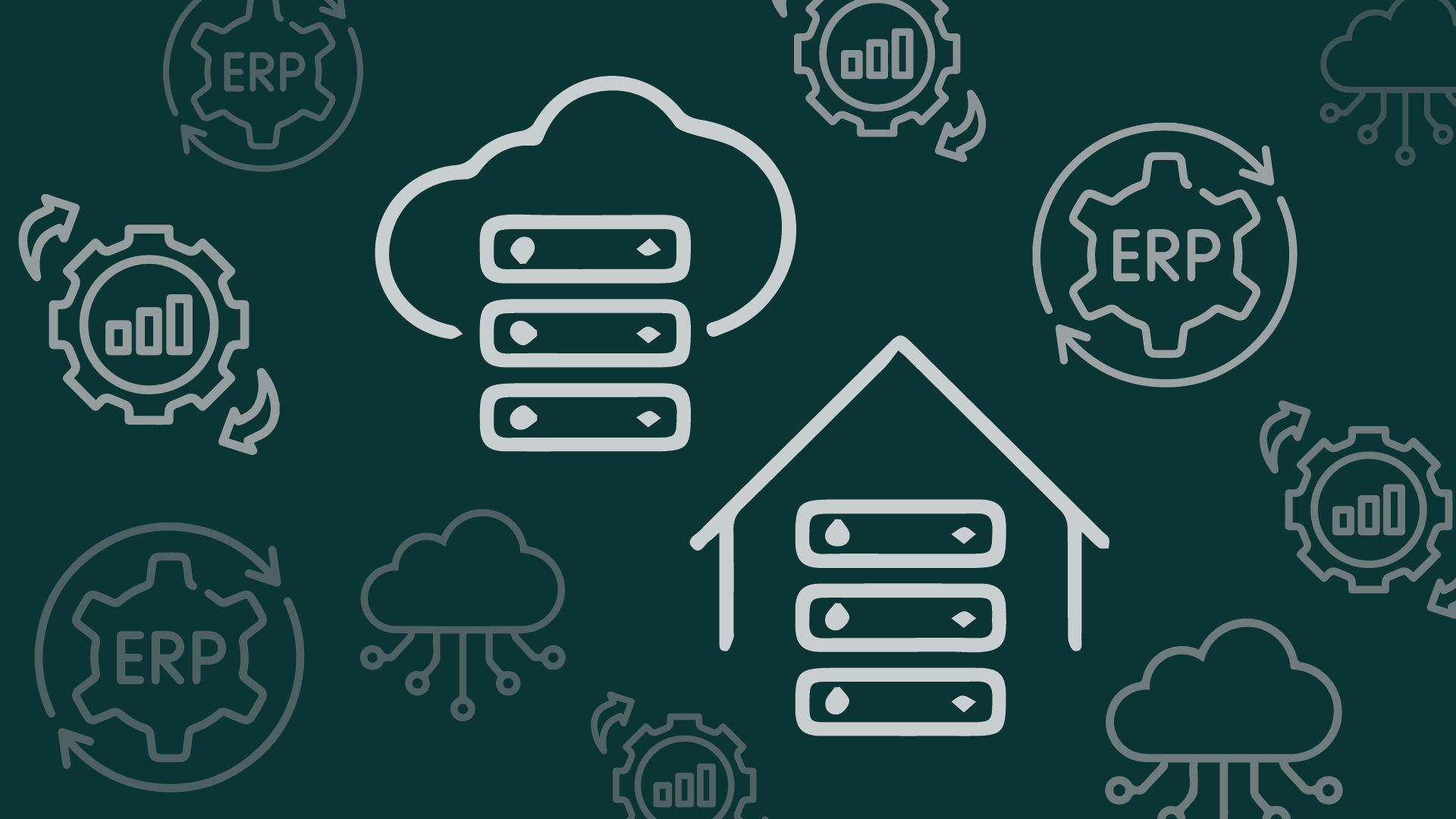In today’s fast-paced business environment, the choice of an Enterprise Resource Planning (ERP) system is more crucial than ever. As companies strive to streamline operations, improve decision-making, and stay competitive, the debate between cloud-based ERP solutions and traditional on-premises systems continues to be a hot topic. While both have their advantages, understanding the benefits and challenges of each can help businesses make informed decisions.
Benefits of Cloud-Based ERP Solutions
Cost Efficiency
Lower Upfront Investment: One of the most significant advantages of cloud-based ERP systems is the reduced initial capital outlay. Unlike on-premises systems, which require expensive hardware, servers, and IT infrastructure, cloud ERP solutions are hosted off-site, eliminating these costs.
Predictable Costs: Cloud ERP solutions are typically offered on a subscription basis, allowing businesses to pay a regular fee that covers software, updates, and maintenance. This model provides predictable expenses, making budgeting easier and freeing up capital for other investments.
Scalability & Flexibility
Easy Scalability: As your business grows or faces fluctuating demands, cloud-based ERP systems can be scaled up or down effortlessly. You can add or remove users, modules, or features without the need for additional hardware or complex configurations. Companies also only need to pay for the resources they use, making it easier to scale up or down based on business needs.
Remote Access: Cloud ERP solutions allow employees to access the system from anywhere with an internet connection. This is particularly beneficial for businesses with remote teams, multiple locations, or employees who travel frequently.
Faster Implementation & Updates
Quicker Deployment: Cloud ERP systems can be deployed more rapidly than traditional on-premises systems, which often require lengthy installation and configuration processes. This speed allows businesses to start reaping the benefits of the system sooner.
Automatic Updates: Cloud providers handle software updates and security patches, ensuring that your system is always up to date with the latest features and security standards without the need for manual intervention.
Enhanced Security & Compliance
Advanced Security Features: Cloud ERP providers typically offer robust security measures, including data encryption, multi-factor authentication, and regular security audits. These providers often have dedicated security teams, which can be more comprehensive than in-house capabilities.
Compliance Support: Many cloud ERP vendors offer tools and support to help businesses comply with industry regulations, such as GDPR, HIPAA, or SOX. This can reduce the burden on internal teams and mitigate compliance risks.
Disaster Recovery & Integration Capabilities
Built-In Backup: Many cloud providers offer robust disaster recovery options, ensuring that data is regularly backed up and can be quickly restored in the event of a failure.
Easier Integration: Cloud-based ERPs often integrate more seamlessly with other cloud services and third-party applications, enhancing business processes and data flow.
Challenges of Cloud-Based ERP Solutions
Data Security and Privacy Concerns
Trusting Third-Party Providers: While cloud providers invest heavily in security, businesses must trust these external vendors with their sensitive data. Concerns about data breaches, unauthorised access, and data sovereignty can be significant for companies in highly regulated industries.
Data Ownership and Control: With cloud-based solutions, businesses often relinquish some control over their data. Data is stored in the cloud which may present challenges in meeting regulatory requirements, especially concerning data location and sovereignty. Understanding the terms of data ownership, access rights, and the provider’s policies on data retrieval and deletion is crucial.
Dependence on Internet Connectivity
Connectivity Issues: Cloud-based ERP systems rely on a stable internet connection. Any disruption in connectivity can hinder access to critical business functions, leading to downtime and potential loss of productivity.
Latency and Performance: In some cases, businesses may experience latency issues, especially if their internet infrastructure is not robust. This can affect the performance of the ERP system and slow down operations.
Customisation Limitations
Standardisation vs. Customisation: Cloud ERP systems often offer standardised features to ensure broad applicability and ease of updates. However, this can limit the level of customisation available compared to on-premises systems, which can be tailored more extensively to specific business processes.
Vendor Lock-In: Customisations in cloud ERP systems may also lead to vendor lock-in, making it challenging to switch providers or migrate to a different system in the future. This can be complex and costly, creating dependency on the chosen vendor.
Ongoing Costs
Subscription Fees: While cloud ERP systems have lower initial costs, the ongoing subscription fees can add up over time. Businesses need to evaluate the total cost of ownership (TCO) over the system’s lifetime to ensure it aligns with their financial goals.
Potential Hidden Costs: Some cloud ERP providers may charge extra for premium features, additional storage, or advanced support. It’s essential to understand these costs upfront to avoid unexpected expenses.
Performance Variability
Shared Resources: Cloud-based systems often share resources among multiple clients, which can sometimes result in performance variability during peak usage times.
Conclusion
Both cloud-based and traditional on-premises ERP systems offer distinct advantages and challenges. Cloud-based ERP solutions excel in cost efficiency, scalability, and accessibility, making them an attractive choice for many modern businesses. However, they come with concerns about data security, customisation limitations, and ongoing costs. On the other hand, traditional on-premises systems offer greater control, customization, and potentially lower long-term costs but require significant initial investment, and maintenance, and face limitations in scalability and flexibility.
Ultimately, the choice between cloud-based and on-premises ERP systems should align with your company’s specific needs, resources, and strategic goals. By carefully weighing the benefits and challenges of each option, you can make a decision that supports your business’s long-term success.
How Cloud2 Consult can help...
Cloud2 Consult helps clients achieve their finance and technology goals by implementing ERP Cloud Solutions and connecting them with the right expertise for seamless finance transformation. Our candidates bring extensive experience in shaping business strategy, delivering complex transformations, and transferring knowledge to empower teams.
We specialise in supporting successful ERP implementations by providing access to top industry experts with proven track records. We carefully validate our network to ensure we represent only the best.
Starting projects correctly is critical for success, and we offer free Fireside Chats with ERP experts to guide building a business case, choosing the right ERP, and navigating the discovery stage. This service is available to both new implementations and those seeking to rescue failing projects, with no obligations.
Free Fireside Chats Get in touch today


